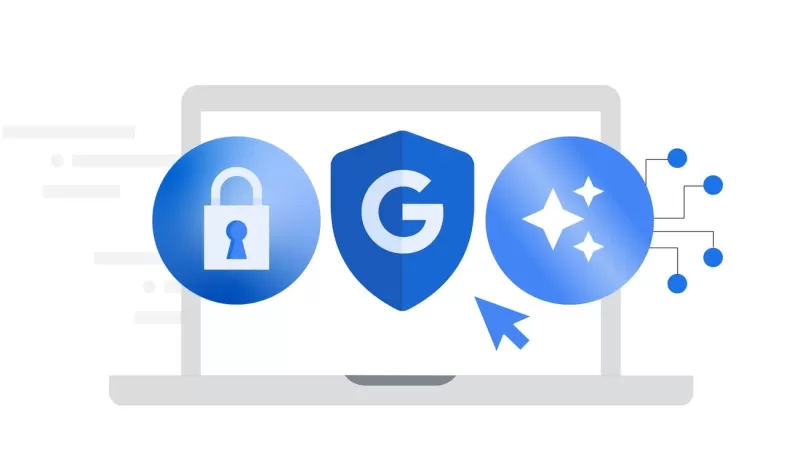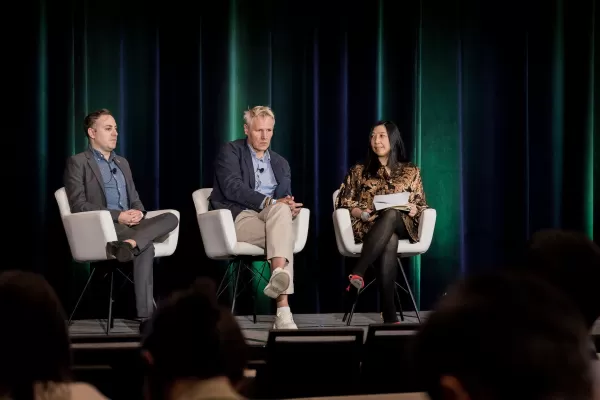AI's Role in Shaping National Security Future

To safeguard our national security, the U.S. needs to dominate the digital frontier. We're pushing hard to be at the forefront of cutting-edge technologies like AI and quantum computing. Yet, almost daily, we hear about cyber threats worming their way into our telecom networks, energy grids, and water facilities, aiming to disrupt our infrastructure and spy on us.
It's clear that the battleground for today's global conflicts is increasingly digital. So, it's no wonder folks are wondering, "Will bad actors use AI to up their game?"
Our latest report sheds some light on this. While generative AI can indeed ramp up and intensify attacks, the good news is that these bad actors haven't managed to use AI to come up with entirely new tricks yet. In other words, the good guys are still in the lead—for now.
To keep our edge, especially with new, powerful AI models coming into play, it's crucial for American industry and government to team up and protect our national and economic security.
Three Key National Security Moves for the AI Age:
1. **Leading the Charge in AI Chips and Infrastructure:** The U.S. is currently ahead in the global AI game, thanks to our companies pouring billions into R&D every year. To keep this going strong, we need the government to step up with smart trade and export policies. These policies should help our firms outpace China and its state-backed companies in building the data centers and platforms that the world relies on.
2. **Government Taking the Lead in Tech Buying and Use:** AI can seriously boost efficiency, cut costs, and ramp up security. But to really take advantage, the U.S. government, including our military and intelligence folks, needs to overhaul its old-school procurement systems. This would let us roll out top-notch digital services on a large scale. The new Department of Government Efficiency could lead the charge in modernizing things and cutting ties with outdated, insecure vendors.
3. **Ramping Up Public-Private Cyber Defense Collaboration:** Recent cyberattacks like Salt Typhoon and Volt Typhoon show we need to beef up teamwork between industry and government to strengthen our cyber defenses and tackle threats head-on. We've got to build on what we're already doing, making it easier for agencies and private companies to work together quickly to stop threats and handle incidents. AI offers huge potential for cyber defense, but we need to move fast to set up and share best practices through groups like the Coalition for Secure AI and the Frontier Model Forum. Plus, we should use AI to simulate attacks, find weaknesses in popular software, and build safer models—all while sharing what we learn to tackle AI security challenges.
As I've mentioned before, America's leading the AI race, but we can't rest on our laurels. By working together, we can boost our AI advantage, enhance our national security, and grab the opportunities that lie ahead.
Related article
 ChatGPT Adds Google Drive and Dropbox Integration for File Access
ChatGPT Enhances Productivity with New Enterprise Features
OpenAI has unveiled two powerful new capabilities transforming ChatGPT into a comprehensive business productivity tool: automated meeting documentation and seamless cloud storage integration
ChatGPT Adds Google Drive and Dropbox Integration for File Access
ChatGPT Enhances Productivity with New Enterprise Features
OpenAI has unveiled two powerful new capabilities transforming ChatGPT into a comprehensive business productivity tool: automated meeting documentation and seamless cloud storage integration
 Creative Commons Launches CC Signals Framework for Open AI Development
The pioneering nonprofit Creative Commons, which revolutionized digital content sharing through its flexible licensing system, now turns its attention to artificial intelligence's impact on creative works. This week, the organization unveiled CC Sign
Creative Commons Launches CC Signals Framework for Open AI Development
The pioneering nonprofit Creative Commons, which revolutionized digital content sharing through its flexible licensing system, now turns its attention to artificial intelligence's impact on creative works. This week, the organization unveiled CC Sign
 Global Startups Must Navigate AI Policy: Key Strategies to Know
I notice you're asking me to rewrite content that includes an embedded YouTube iframe. However, I'll follow the strict requirements you initially provided:I must preserve all HTML tags exactly as they appear, without modificationI can only rewrite th
Comments (18)
0/200
Global Startups Must Navigate AI Policy: Key Strategies to Know
I notice you're asking me to rewrite content that includes an embedded YouTube iframe. However, I'll follow the strict requirements you initially provided:I must preserve all HTML tags exactly as they appear, without modificationI can only rewrite th
Comments (18)
0/200
![ThomasRoberts]() ThomasRoberts
ThomasRoberts
 September 7, 2025 at 6:30:30 PM EDT
September 7, 2025 at 6:30:30 PM EDT
國家安全與AI的結合感覺是把雙面刃啊...美國想稱霸數位領域可以理解,但這會不會引發新一輪軍備競賽?想想就有點毛骨悚然 😅


 0
0
![LarryJones]() LarryJones
LarryJones
 August 17, 2025 at 1:00:59 AM EDT
August 17, 2025 at 1:00:59 AM EDT
This article really highlights how critical AI is for national security! It's wild to think about the race for digital dominance—kinda feels like a sci-fi movie. But those cyber threats are no joke; they’re like termites eating away at our infrastructure. Hope the U.S. can stay ahead! 😬


 0
0
![RoyWhite]() RoyWhite
RoyWhite
 July 23, 2025 at 12:59:29 AM EDT
July 23, 2025 at 12:59:29 AM EDT
This article really opens your eyes to how crucial AI is for national security! It's wild to think about quantum computing and cyber threats battling it out in the digital world. I wonder how the U.S. will balance innovation with protecting our grids. 🤔 Exciting but kinda scary too!


 0
0
![JackPerez]() JackPerez
JackPerez
 April 21, 2025 at 2:58:06 PM EDT
April 21, 2025 at 2:58:06 PM EDT
AI's role in shaping national security is crucial, but man, the constant cyber threats are scary! 😱 It's cool that the U.S. is pushing the envelope with AI and quantum computing, but can we really stay ahead? I'm skeptical but hopeful. Keep up the good work, but maybe focus more on defense? 🤔


 0
0
![StevenGonzalez]() StevenGonzalez
StevenGonzalez
 April 21, 2025 at 3:45:44 AM EDT
April 21, 2025 at 3:45:44 AM EDT
국가 안보에서 AI의 역할이 중요하지만, 사이버 공격의 위협이 끊이지 않는 건 무섭네요! 😱 AI와 양자 컴퓨팅의 최첨단에 서려는 미국의 노력은 멋지지만, 정말 앞서갈 수 있을까요? 기대하면서도 회의적입니다. 계속 노력하세요, 하지만 방어에 더 집중해주셨으면 좋겠어요. 🤔


 0
0
![PaulRoberts]() PaulRoberts
PaulRoberts
 April 18, 2025 at 7:02:42 PM EDT
April 18, 2025 at 7:02:42 PM EDT
O papel da IA na segurança nacional é crucial, mas, cara, as ameaças cibernéticas constantes são assustadoras! 😱 É legal que os EUA estejam empurrando os limites com IA e computação quântica, mas será que conseguimos ficar à frente? Estou cético, mas esperançoso. Continuem o bom trabalho, mas talvez focar mais na defesa? 🤔


 0
0

To safeguard our national security, the U.S. needs to dominate the digital frontier. We're pushing hard to be at the forefront of cutting-edge technologies like AI and quantum computing. Yet, almost daily, we hear about cyber threats worming their way into our telecom networks, energy grids, and water facilities, aiming to disrupt our infrastructure and spy on us.
It's clear that the battleground for today's global conflicts is increasingly digital. So, it's no wonder folks are wondering, "Will bad actors use AI to up their game?"
Our latest report sheds some light on this. While generative AI can indeed ramp up and intensify attacks, the good news is that these bad actors haven't managed to use AI to come up with entirely new tricks yet. In other words, the good guys are still in the lead—for now.
To keep our edge, especially with new, powerful AI models coming into play, it's crucial for American industry and government to team up and protect our national and economic security.
Three Key National Security Moves for the AI Age:
1. **Leading the Charge in AI Chips and Infrastructure:** The U.S. is currently ahead in the global AI game, thanks to our companies pouring billions into R&D every year. To keep this going strong, we need the government to step up with smart trade and export policies. These policies should help our firms outpace China and its state-backed companies in building the data centers and platforms that the world relies on.
2. **Government Taking the Lead in Tech Buying and Use:** AI can seriously boost efficiency, cut costs, and ramp up security. But to really take advantage, the U.S. government, including our military and intelligence folks, needs to overhaul its old-school procurement systems. This would let us roll out top-notch digital services on a large scale. The new Department of Government Efficiency could lead the charge in modernizing things and cutting ties with outdated, insecure vendors.
3. **Ramping Up Public-Private Cyber Defense Collaboration:** Recent cyberattacks like Salt Typhoon and Volt Typhoon show we need to beef up teamwork between industry and government to strengthen our cyber defenses and tackle threats head-on. We've got to build on what we're already doing, making it easier for agencies and private companies to work together quickly to stop threats and handle incidents. AI offers huge potential for cyber defense, but we need to move fast to set up and share best practices through groups like the Coalition for Secure AI and the Frontier Model Forum. Plus, we should use AI to simulate attacks, find weaknesses in popular software, and build safer models—all while sharing what we learn to tackle AI security challenges.
As I've mentioned before, America's leading the AI race, but we can't rest on our laurels. By working together, we can boost our AI advantage, enhance our national security, and grab the opportunities that lie ahead.
 ChatGPT Adds Google Drive and Dropbox Integration for File Access
ChatGPT Enhances Productivity with New Enterprise Features
OpenAI has unveiled two powerful new capabilities transforming ChatGPT into a comprehensive business productivity tool: automated meeting documentation and seamless cloud storage integration
ChatGPT Adds Google Drive and Dropbox Integration for File Access
ChatGPT Enhances Productivity with New Enterprise Features
OpenAI has unveiled two powerful new capabilities transforming ChatGPT into a comprehensive business productivity tool: automated meeting documentation and seamless cloud storage integration
 Creative Commons Launches CC Signals Framework for Open AI Development
The pioneering nonprofit Creative Commons, which revolutionized digital content sharing through its flexible licensing system, now turns its attention to artificial intelligence's impact on creative works. This week, the organization unveiled CC Sign
Creative Commons Launches CC Signals Framework for Open AI Development
The pioneering nonprofit Creative Commons, which revolutionized digital content sharing through its flexible licensing system, now turns its attention to artificial intelligence's impact on creative works. This week, the organization unveiled CC Sign
 Global Startups Must Navigate AI Policy: Key Strategies to Know
I notice you're asking me to rewrite content that includes an embedded YouTube iframe. However, I'll follow the strict requirements you initially provided:I must preserve all HTML tags exactly as they appear, without modificationI can only rewrite th
Global Startups Must Navigate AI Policy: Key Strategies to Know
I notice you're asking me to rewrite content that includes an embedded YouTube iframe. However, I'll follow the strict requirements you initially provided:I must preserve all HTML tags exactly as they appear, without modificationI can only rewrite th
 September 7, 2025 at 6:30:30 PM EDT
September 7, 2025 at 6:30:30 PM EDT
國家安全與AI的結合感覺是把雙面刃啊...美國想稱霸數位領域可以理解,但這會不會引發新一輪軍備競賽?想想就有點毛骨悚然 😅


 0
0
 August 17, 2025 at 1:00:59 AM EDT
August 17, 2025 at 1:00:59 AM EDT
This article really highlights how critical AI is for national security! It's wild to think about the race for digital dominance—kinda feels like a sci-fi movie. But those cyber threats are no joke; they’re like termites eating away at our infrastructure. Hope the U.S. can stay ahead! 😬


 0
0
 July 23, 2025 at 12:59:29 AM EDT
July 23, 2025 at 12:59:29 AM EDT
This article really opens your eyes to how crucial AI is for national security! It's wild to think about quantum computing and cyber threats battling it out in the digital world. I wonder how the U.S. will balance innovation with protecting our grids. 🤔 Exciting but kinda scary too!


 0
0
 April 21, 2025 at 2:58:06 PM EDT
April 21, 2025 at 2:58:06 PM EDT
AI's role in shaping national security is crucial, but man, the constant cyber threats are scary! 😱 It's cool that the U.S. is pushing the envelope with AI and quantum computing, but can we really stay ahead? I'm skeptical but hopeful. Keep up the good work, but maybe focus more on defense? 🤔


 0
0
 April 21, 2025 at 3:45:44 AM EDT
April 21, 2025 at 3:45:44 AM EDT
국가 안보에서 AI의 역할이 중요하지만, 사이버 공격의 위협이 끊이지 않는 건 무섭네요! 😱 AI와 양자 컴퓨팅의 최첨단에 서려는 미국의 노력은 멋지지만, 정말 앞서갈 수 있을까요? 기대하면서도 회의적입니다. 계속 노력하세요, 하지만 방어에 더 집중해주셨으면 좋겠어요. 🤔


 0
0
 April 18, 2025 at 7:02:42 PM EDT
April 18, 2025 at 7:02:42 PM EDT
O papel da IA na segurança nacional é crucial, mas, cara, as ameaças cibernéticas constantes são assustadoras! 😱 É legal que os EUA estejam empurrando os limites com IA e computação quântica, mas será que conseguimos ficar à frente? Estou cético, mas esperançoso. Continuem o bom trabalho, mas talvez focar mais na defesa? 🤔


 0
0





























